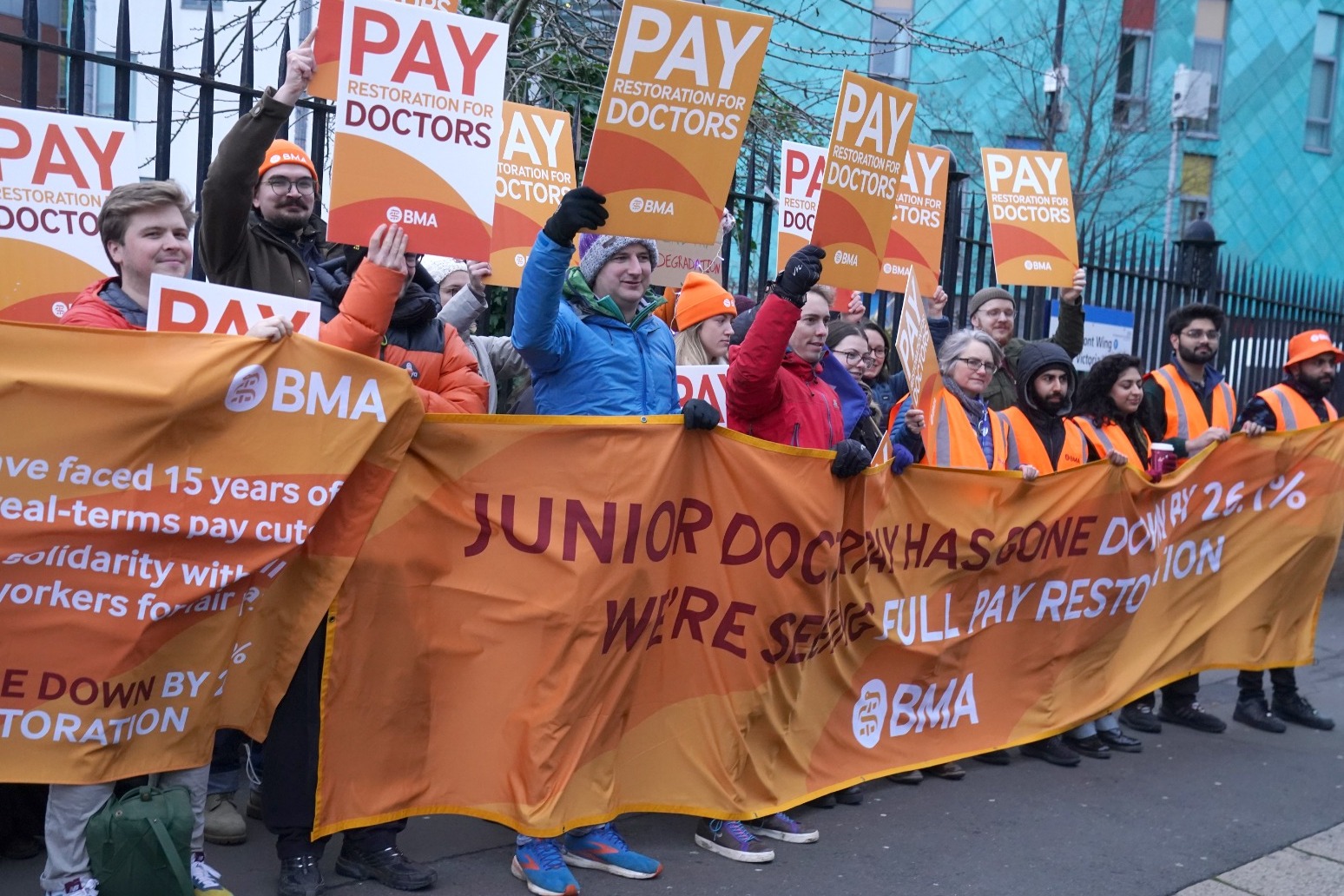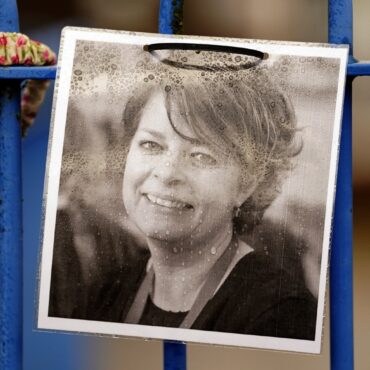-
 play_arrow
play_arrow
DukeBox Radio The Voice Of The Wellington Academy
-
 play_arrow
play_arrow
Jetstream Episode #15 - Festival of Education Celebration


The longest strike in NHS history “couldn’t come at a worse time”, experts said as they warned that elderly patients could put off seeking medical help due to the walkouts.
Hospital bosses said the health service is “in the grip of peak winter pressure” as junior doctors in England take to picket lines for six days.
NHS Providers said the “unprecedented” action will lead to delays in care for thousands of patients.
The organisation, which represents NHS trusts, also called for a swift resolution to the dispute between the Government and junior doctors as it warned of the threat of other health workers taking more strike action.
The industrial action, from 7am on Wednesday January 3 to 7am on Tuesday January 9, comes at one of the busiest times of the year for the NHS as it grapples with increased pressure from winter viruses and a rise in people coming forward who delayed seeking help over the holidays.
The NHS has warned that the strike action, which could see up to half of the medical workforce in England walk out, could lead to “the most difficult start to the year the NHS has ever faced”.
It said emergency and urgent care will be prioritised during the strikes and almost all routine care will be affected.
But patients are being urged to still come forward to seek care if they need it.
Age UK has warned that the threat of strikes could deter elderly people from seeking care when they need it.
The charity also said it will be “difficult to guarantee safe and effective care for everyone who needs it”.
Commenting on the industrial action, Sir Julian Hartley, chief executive of NHS Providers, said: “The longest-ever strike in NHS history will mean many more thousands of patients face delays and disruption.
“With the NHS in the grip of peak winter pressure throughout the system, this week’s strike by junior doctors couldn’t come at a worse time.
“Trusts have planned thoroughly to keep patients safe and to provide critical and emergency care but the scale of the challenge in an unprecedented six-day strike will be bigger than ever before.
“We need a speedy resolution to this dispute as we see the risk of industrial action by other staff returning in our health services.”
He warned that hospital bosses are spending “too much time planning for and coping with industrial action instead of putting all their energy into cutting waiting lists”.
Paul Farmer, chief executive at Age UK, said: “We are deeply concerned about the risk this poses to older people’s health as, with the very best will in the world and efforts of staff, it will be difficult to guarantee safe and effective care for everyone who needs it.
“At Age UK we are also very concerned that older people who may be feeling unwell but are put off seeking the care they need due to the strikes.
“We have increasingly heard from older people, already struggling to access the help they need, now worried what ongoing strikes mean for themselves and their families on top.”
He said the current situation is “unsustainable” as he urged the Government and doctors to resolve the dispute.
On Tuesday, NHS England’s national medical director, Professor Sir Stephen Powis, said the action comes at “one of our busiest periods” and warned that the strike action will mean the NHS is “starting 2024 on the back foot”.
But he added: “I cannot stress enough that people who need care must come forward as they usually would – using 999 and A&E in life-threatening emergencies and 111 online for everything else.”
Dr Robert Laurenson and Dr Vivek Trivedi, co-chairmen of the British Medical Association’s (BMA) junior doctors committee, said in a statement: “We spent the holiday period hoping we would get the ‘final offer’ that the Health Secretary had promised us last year. Sadly, we have received no such offer despite repeatedly saying we would meet for talks any time over Christmas.
“We will continue to offer to meet throughout these coming strikes. All we need is a credible offer we can put to members and we can call off these strikes.
“This strike marks another unhappy record for the NHS – the longest single walkout in its history – but there is no need for any records to fall: we can call off this strike now if we get an offer from Government that we can put to members.”
Health and Social Care Secretary, Victoria Atkins, said: “January is typically the busiest time of the year for the NHS and these strikes will have a serious impact on patients across the country.
“Over 1.2 million appointments have already been rescheduled since industrial action began, including over 88,000 during last month’s strikes.
“The NHS has again put in place robust contingency plans to protect patient safety and it is vital anyone who needs medical help continues to come forward.
“I urge the BMA Junior Doctors Committee to call off their strikes and come back to the negotiating table so we can find a fair and reasonable solution to end the strikes once and for all.”
The BMA said junior doctors’ pay has been cut by more than a quarter since 2008.
In summer 2023, the Government gave junior doctors in England an average rise of 8.8%, but medics said the increase was not enough and ramped up strike efforts.
Late last year the Government and junior doctors entered talks with a view to breaking the deadlock, but after five weeks of negotiations the talks broke down and medics called more strikes.
Junior doctors from the Hospital Consultants and Specialists Association union will also join colleagues on picket lines.
Consultants and specialty and associate specialist (SAS) doctors have since agreed a deal with the Government, which is now being put to members.
Published: by Radio NewsHub
Written by: admin




